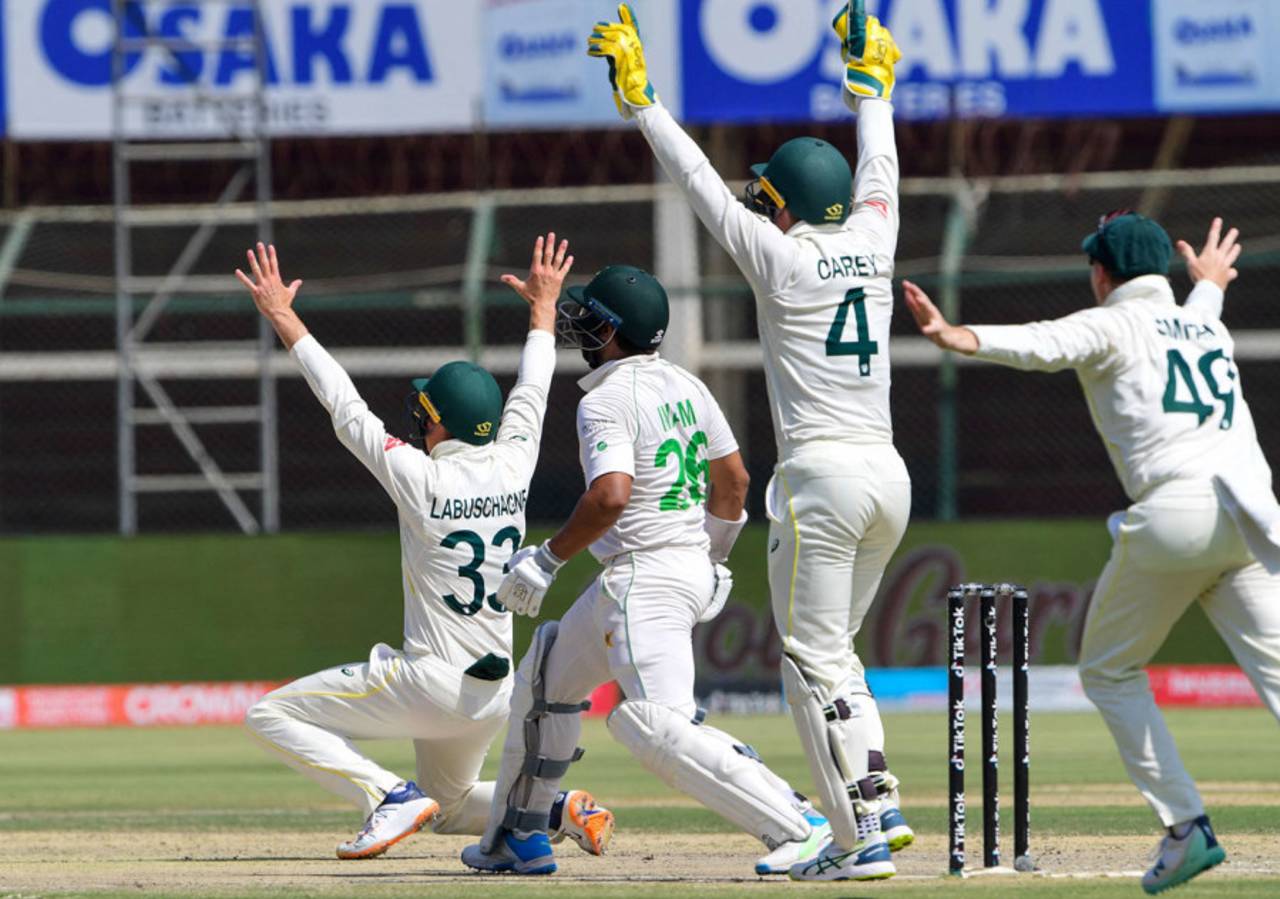Ghosts of Sydney cast uneasy shadow over Australia's Karachi quest
They remain on course for a rare win in Asia, but recent near-misses will be in the back of their minds

Australia need to create eight more chances, and take them, to win the Karachi Test • AFP/Getty Images
Andrew McGlashan is a deputy editor at ESPNcricinfo